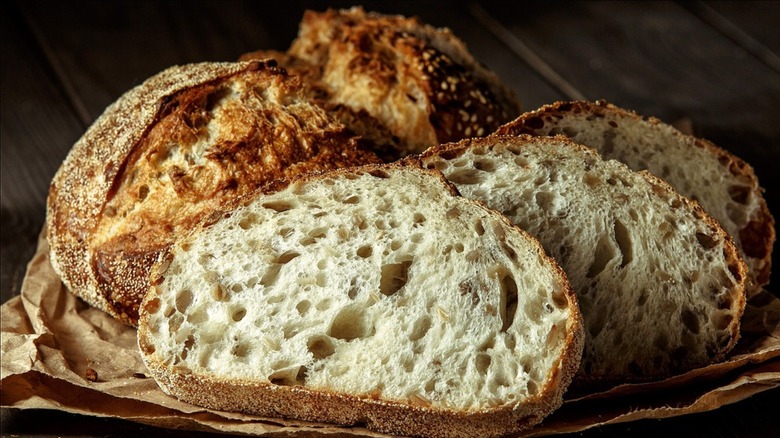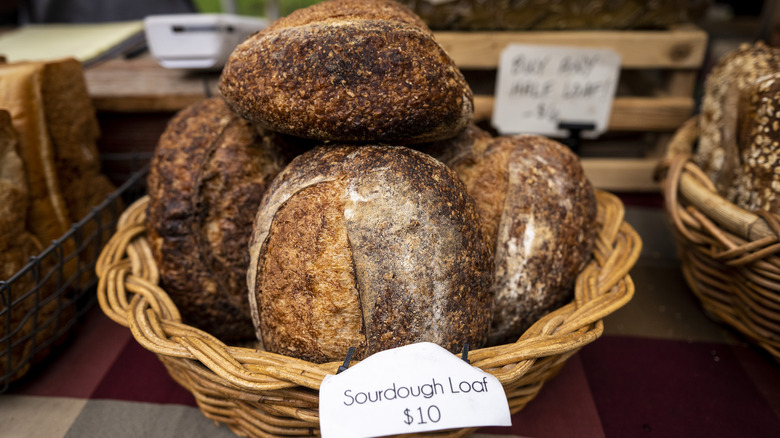Why You Don't Want To Use Unfiltered Water In Your Sourdough Recipe
If you follow food trends, you might remember when homemade sourdough started popping all over social media. Wondering how sourdough bread became so popular? People picked up tending to sourdough starters as a hobby during the start of the Covid-19 pandemic in 2020, but the sourdough trend goes back further than that. Byran Ford of "Best in Dough" wrote a book featuring sourdough and has been posting about the bread since 2018.
If now's the time you want to start making sourdough, it's not too late to make a starter in your own kitchen. Although you're more than likely to make loaves of rustic sourdough bread, there's a lot more you can do with your sourdough starter. For example, use your starter to make dessert by baking a batch of sweet sourdough cinnamon rolls or a sourdough pizza crust.
But no matter how you use your dough, it's important to make your sourdough starter correctly. It doesn't take many ingredients to make, but when it comes to the water, you'll need to make sure it's filtered and free of certain chemicals. Here's why the water you use makes all the difference in your sourdough's success.
The chlorine in unfiltered water will kill your sourdough starter
As Cook's Illustrated explains, you don't need any sort of special water to make a sourdough starter, but it's important to avoid unfiltered tap water because the chlorine in the water will kill your starter. While you can use bottled water for your sourdough, simply filtering your tap water works just as well.
If you don't have a water filter, that doesn't mean you can't make sourdough. Allrecipes outlines a solution to get rid of chlorine, and all it takes is a little bit of time. According to Allrecipes, you can leave a pitcher uncovered at room temperature for 24 hours to allow the water to "off-gas." After this time, you can use the water to make the starter dough or to feed your sourdough starter.
Wondering what other tips you'll need to know in order to bake the perfect sourdough? Another crucial step in baking bread is the proofing stage, and here's what you need to know about proofing sourdough, from where to proof the dough to how to tell it's ready to go in the oven.

